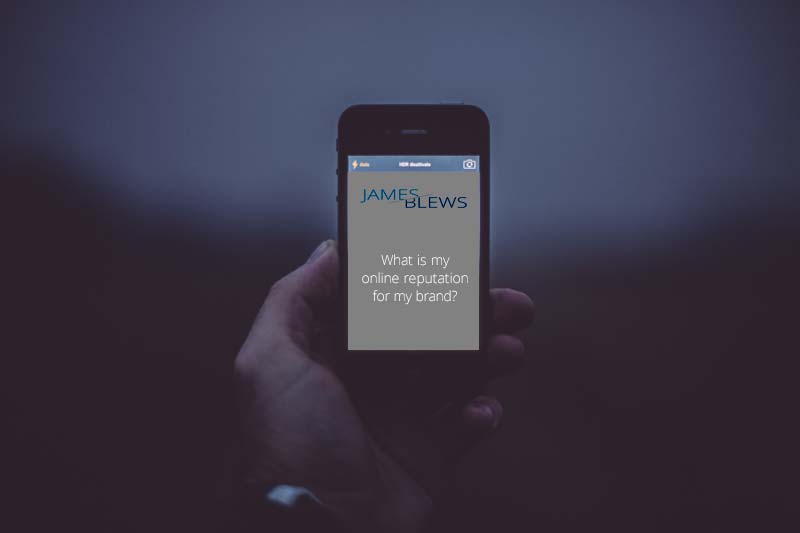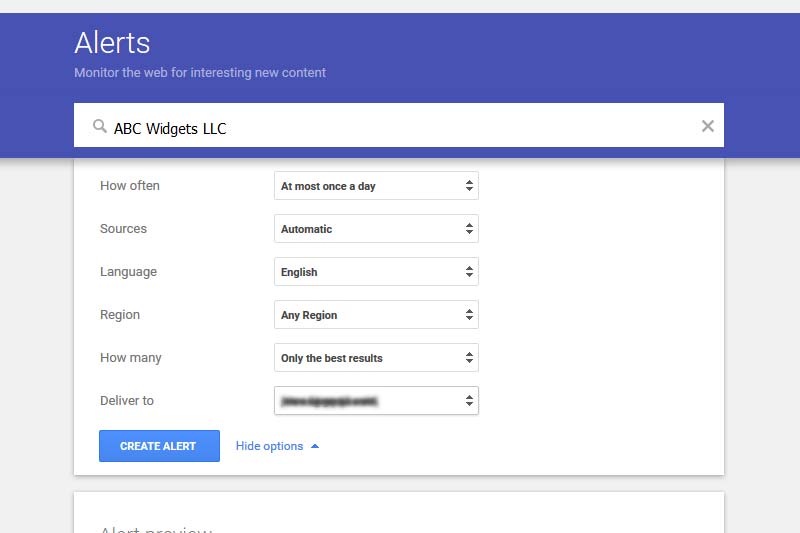Online reputation holds a weird view from business owners. Normally, in fact I would say 99.95% of the time, businesses view ORM (online reputation management) as essential only with the poop hits the fan. But in 2016, can you really be only reactive?
Think about this…
How often have you thought about your brand’s online reputation? How many times have you thought ‘we should plan ahead of any negatives online’?

The truth is you probably haven’t.
Businesses focus on doing business. If things are positive, businesses keep going. If something negative appears, it is then that a decision is made to fix it.
Online reputation needs are not in the company alone
Online reputation, in the last ten years, has escaped the confines of message boards that ‘could’ create negative views of your brand. It is now social media that is the top place that you will see negative issues with your brand.
Recently, Pedigree came under a massive social media wave when pet owners claimed to have found multiple fibers in their pet food. Pedigree’s Facebook Page was lit up with thousands upon thousands of replies and messages concerning these issues. Not only was the company having to answer many posts on their Facebook page, but they also created a video and a tab on their account specifically for these fibers (find it here).
Nestlé was another company that had major issues a few years ago. These involved their environmental practices; and they went unanswered. Things escalated to the point that the public were posting alternate version of the Nestlé logo. The result was the company shut their page down. Their lack of response, combined with the growing negative reputation, led to a situation that had little to no way to come back from socially.
While social media might be the fastest place for online reputation to go south fairly quickly, there are others.
- Negative media coverage and press
- Negative online reviews on Yelp, Facebook and more
- Company employees’ comments and public image
- Hate sites and negative domain names
- Harmful social media posts, comments and reactions
There are many ways to suppress everything in the list above. In fact, nearly anything that represents a negative online reputation attack can be treated. You can get aggressive with SEO and SEM, become more active in your press release and PR campaigns and more.
But what if, in 2016 you do things a bit differently?
What if 2016 is a more proactive year for your business?
Online Reputation Management For The Unknown
No one knows what tomorrow will bring. However, with some planning, and a few simple to implement and control methods, you can help to sculpt and shape your brand’s image in the face of customers.
Proactive online reputation management builds not only a strong foundation, but also allows for others to hold a hand in that. Meaning, the public, as a whole, sees a stronger and stronger positive reputation for your brand.
And the real results?
You control your brand’s organic search results.
You control your brand’s public image.
Your brand’s social media presence is ONLY positive.
Your brand is trusted.
The simple fact is that if you can sculpt that reputation. You can control brand assets. And, you can grow the trust in your brand with the public. These can be done proactively to make your brand bullet-proof. 2016 doesn’t have to be just another year.
Instead, you can make it a solid year of building brand trust. You can make sure that a few negative reviews don’t hurt your brand. You can circumvent a poor social media response inadvertently made. You can also make sure that even someone with a vendetta doesn’t take you out of business next year.
While the internet really does encompass what free speech is, it doesn’t give people the right to maliciously make up issues to kill your business. People cannot simply make up false information in an effort to hurt you, your brand, your employees and your bottom line.
Know what to call the police and take legal action
Free speech is a great thing. You, as an individual, should be afforded the right to express your voice, your opinions and to be heard. However, sometimes things can go a little too far; to the point when legal action of a call to the police is needed.
When is a review going a little too far? When is online activity to the point that lawyers and officers should get involved?
Here are 3 examples of when online speech is not just free, but defamatory and illegal.
- The information is false in nature in an effort to cause damage
- There is defamatory language that could cause pain and suffering, or loss of business
- The goal is to damage a business into losing customers, employees & even closing a business
One thing I really want to make clear here is that you can fight these with online actions. You can do some really aggressive SEO and SEM, social media sculpting, online review cultivating and more. These can neutralize and suppress the negative campaign someone has launched against you. And, if these are illegitimate attacks, then you should.
However, getting law enforcement involved makes sense for one big reason: if you don’t, they might just keep right on doing it over and over and over again. You could spend a small fortune on ORM and ORM suppression, only to have to spend even more.
Saving Your Brand From Disaster With Online Reputation Management
Here is a scenario for you to consider…
You have a website, and a social media account (we’ll say Facebook for this example) for your business. You are not really active in social, but you do mention events, charity work and even job postings on your social media page. Your website works more or less the same way.
Your business, the brand, is a profitable company. You gain new customers, and have not been the target of anything negative.
In fact, when you search for your brand, as well as brand-keywords for your industry + the region, you are all over page one of Google and Bing.
Your brand is positive.
Now comes the wrench in the gears…a lawsuit. The suit claims certain issues within the company. This particular lawsuit also sees multiple press releases and social media posts concerning the lawsuit. This news coverage continues for days and longer.
After some time, you run a search for your brand once again. And you notice an odd thing. Something that makes you nearly sick when you think of the ramifications of all of this.
The negatives (lawsuit press releases, mentions about anything negative in your company’s past and even some social media negative posts) are sitting side-by-side with your positive search engine results. You know longer are considered the positive company that you once were.
To make matters worse, the lawsuit was found without merit, and the suit, itself, goes away.
What doesn’t are the links, brand mentions in a negative way, the headlines, the negative idea of your business…
THAT happens to companies. It happens every day, and it can happen to you tomorrow.
I don’t mean to scare you, but I do want to educate you. This CAN happen. There are many brands that have privately handled the negative online reputation campaigns that occur without you ever knowing. However, these methods are worth tens of thousands of dollars, monthly for truly hurt brands.
Not every business is a multi-billion dollar company that can wait and spend money to make these items go away. Instead, you can save a ton of money by doing more proactive methods of ORM. You can build the foundation, the billboards and the rep of your brand before a negative online reputation campaign is created against you.
Let me show you a few simple, sometimes cheap or even free, methods that you can start using today. Use the proactive approaches to online reputation management for your business, and 2016 might have you breathing a bit easier.
1 – Secure your ENTIRE brand, from the ground up
Start very simple here. Owning your brand’s assets makes sense since no one can come along, scoop them up and do damage.
First, claim any brand names for social media accounts. Claim the literal brand name, any misspellings, grab the business’s filing name (Some Company LLC) and even names that are related to your business.
For the literal names and business names, use your branding (images, colors, etc), to match those assets to your brand. Start posting, start participating and start using social media what it’s for – not a sales tool.
Next, start buying domains. If you can control the .com for your brand, your ownership and even products that you own, you will be one step ahead. The more assets that you control, the higher spots in SERPs (search engine results pages) you will control. The pre-suppresses any future negative results.
If you would like, you could even grab domains that have keywords that are top searches that yield your brand. If you own a landscaping company in Houston Texas, then landscapinginhouston.com might be a great idea. You can use regions, industry keywords and your brand keywords here.
One other tip, you can also grab negative terms with brand names:
- XXXXsucks.com
- theterribleXXXX.com
- XXXXishorrible.com
You get the idea. If you control the positive assets, along with these negative ones, you control the brand’s look and perception. You also control all of the messages and reputation.
Finally, grab any and all citation and review listings. Most of these are on the up and up, requiring phone verification using a number listed on your website. This verifies that the number is owned by your brand, and not by someone random trying to claim your brand’s page.
2 – Learn to monitor your brand, your employees and your customers better
Monitoring a brand is not the simplest task. You can see an overwhelming swell of negative brand mentions very quickly. Other times, you can slowly see these mount up from very authoritative sources over time. Setting up something simple, and quick, makes a lot of sense.
First, create a very basic, but clear, social media guideline for your employees. The same should be followed for everyone in the brand from the full-time mechanic to the CEO of the company.
Next, use social media to create and participate in conversations. This works for negative brand mentions. Publicly handle these negatives in a professional and smart manner. If you decide to do what Dark Horse Espresso did in 2010 with a less than positive Tweet, you could see a negative impact because of YOU, and less about them.
@aprildunford that’s awesome… we are in the coffee business, not the office business. We have plenty of outlets to do what we need…
— Dark Horse Espresso(@darkhorsecafe) January 15, 2010
Next, signup for Google Alerts. Enter your brand name into the search box, and notify yourself using an email. You can designate how often you get these results and with what boundaries.

I recommend doing this will any and all regional and industry specific keywords concerning your brand, as well as your brand and its permutations.
3 – Promote positives without promoting everything
What I am about to suggest is not for everyone. However, it is for every brand.
So, let’s start with these two words: PRESS RELEASES.
Actively create press releases for all charitable activities that you do prior to doing them, and then after. Send out press releases when your brand sees a milestone. Use press releases as a method to network with and contact newspapers, magazines, news stations and websites concerning your brand.
Don’t overdo this method. Instead, only create and network your brand’s most public and positive news needs.
Another thing to do would be to use video marketing and non-traditional social media platforms to show knowledge and expertise in your industry. Have managers and owners write articles, or at least prep them for another writer, to discuss the brand in terms of the region and industry. Use video in the same way including Blab.im, Periscope and Hangouts to do the same.
Don’t make these articles, the videos nor press releases ‘salesy’. Instead, this is about information, proving brand strength and giving positives to the community and region at large.
Promote your brand. Promote your people. Everyone that works for you, you as the owner, and even your customers, are part of what makes your brand’s message happen.
To get that done, we promote by showing who we are and what we do in the most positive way possible. Basically, we promote without promoting. We show service, product and quality in all things that are the brand, from beginning to end.
You don’t have to stop here, with these few items, either…
- Conduct webinars or live streaming Q&A’s
- Write content for LinkedIn and even Reddit
- Keep transparent with releases of certain “behind the curtain” offers or new products
- Join HARO to possibly participate in industry-specific or regional interviews
- Actively find guest writing or guest interview opportunities
All of these continually give free information and brand awareness at the barest of costs (usually, nothing more than time).
More Online Reputation Tips For The New Year
2016 shouldn’t be a complacent year for your business. Your online reputation should always be in the positive. However, there are things that you can do to make sure that this new year is a strong and positive one for your business.
If you have more questions about your business, feel free to schedule a free consultation for your brand at email@jamesblews.com right now. We can go over any negative issues your brand is experiencing, as well as discuss some methods that you can use to strengthen your brand for any future unknowns.

